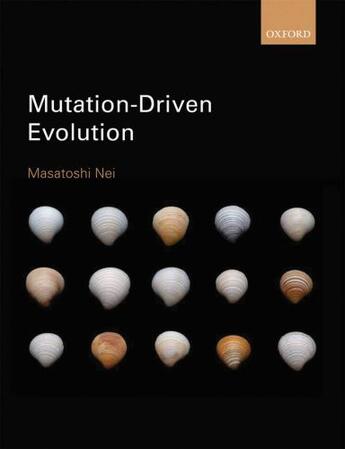-
Nombre de pages : (-)
-
Collection :
(-)
-
Genre :
(-)
-
Thème :
Non attribué
-
Prix littéraire(s) :
(-)
Résumé:
The purpose of this book is to present a new mechanistic theory of mutation-driven evolution based on recent advances in genomics and evolutionary developmental biology. The theory asserts, perhaps somewhat controversially, that the driving force behind evolution is mutation, with natural... Voir plus
The purpose of this book is to present a new mechanistic theory of mutation-driven evolution based on recent advances in genomics and evolutionary developmental biology. The theory asserts, perhaps somewhat controversially, that the driving force behind evolution is mutation, with natural selection being of only secondary importance. The word 'mutation' is used to describe any kind of change in DNA such as nucleotide substitution, gene duplication/deletion, chromosomal change, and genome duplication. A brief history of the principal evolutionary theories (Darwinism, mutationism, neo-Darwinism, and neo-mutationism) that preceded the theory of mutation-driven evolution is also presented in the context of the last 150 years of research. However, the core of the book is concerned with recent studies of genomics and the molecular basis of phenotypic evolution, and their relevance to mutation-driven evolution. In contrast to neo-Darwinism, mutation-driven evolution is capable of explaining real examples of evolution such as the evolution of olfactory receptors, sex-determination in animals, and the general scheme of hybrid sterility. In this sense the theory proposed is more realistic than its predecessors, and gives a more logical explanation of various evolutionary events.
Mutation-Driven Evolution is suitable for graduate level students as well as professional researchers (both empiricists and theoreticians) in the fields of molecular evolution and population genetics. It assumes that the readers are acquainted with basic knowledge of genetics and molecular biology.
Donner votre avis














